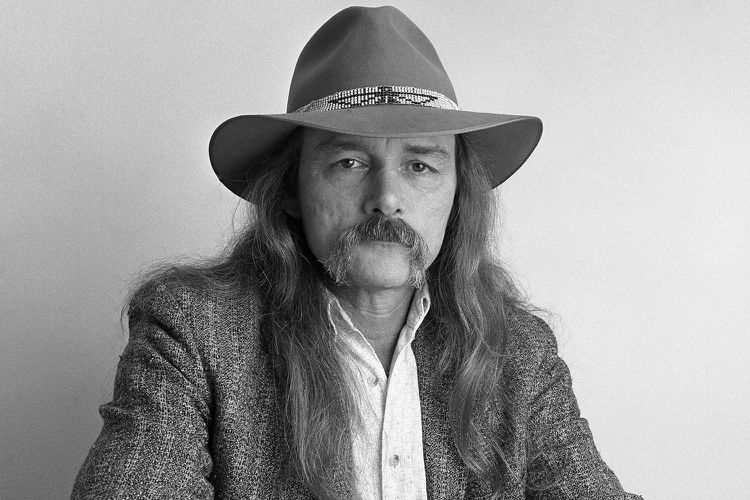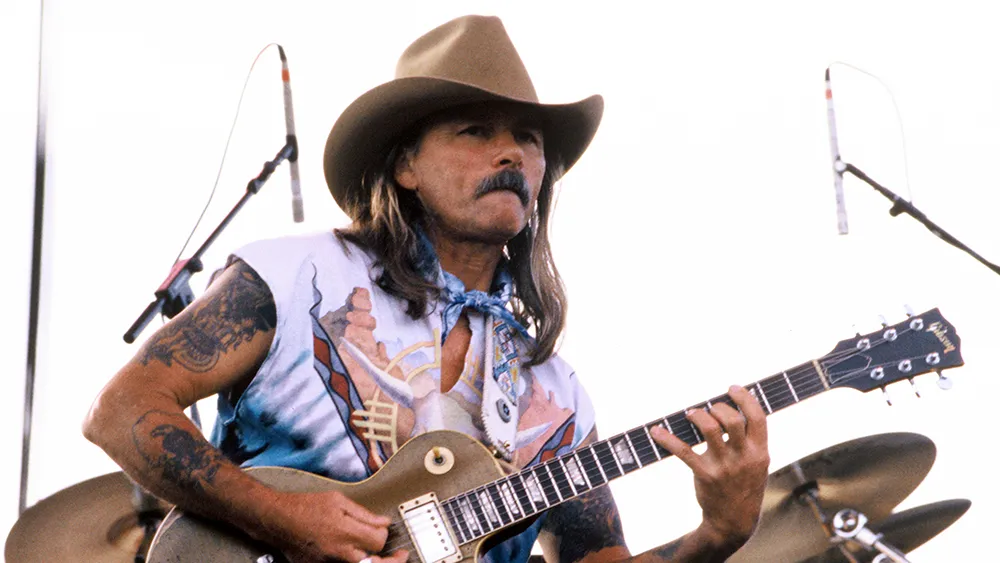Until Duane Allman and Dickey Betts formed the Allman Brothers in 1969, the standard rock band lineup called for a lead guitar backed by a rhythm guitar. Duane and Dickey both played lead. This twin guitar arrangement created a sound that permanently changed the paradigm that became southern rock. They were from Georgia. Dickey was just as important to their sound as Duane. He wrote and sang on the Allmans’ hit single “Ramblin’ Man” as well as “Blue Sky. He also composed the instrumentals “In Memory of Elizabeth Reed” and “Jessica.”
Duane died in 1971, leaving Dickey the role as sole lead guitarist in the Allman Brothers. His relationship with the rest of the band was problematic to say the least. Technically, Dickey wasn’t related to Duane and Gregg. He was an Allman brother with a small B, and he ended up being replaced by Warren Haynes and Derek Trucks before the band called it quits in 2014.
Having interviewed every one of the Allman Brothers guitarists for over a half century, I’ve come to the conclusion that one of the reasons Dickey was let go was his drug habit which he took care of in the early ’80s. The other was, to put it bluntly, he didn’t have the last name of Allman.
Below are quotes from interviews I did with Dickey in 1985 and 2002 where he talks candidly about the breakup. As a music journalist who has interviewed Dickey, Gregg Allman, Derek Trucks, and Warren Haynes, I’ve always felt Dickey never received due credit for his role with the band in giving birth to southern rock. Here’s what he had to say in 1985 and 2002.

2002: “Even Duane back then used to say, ‘Goddamn, don’t you people realize Betts plays lead guitar, too?’ Duane and I both dealt with that really well. He was the more popular or famous or noticeable of the two of us, but he and I talked about just jealousy between the two of us. Not about what the press would say or not say, but just on stage being jealous of one guy or the other.”
2002: “I certainly wasn’t performing as far as bringing material in as well as I would have liked to. There’s jealousies and resentments and all of these human frailties we’re all guilty of. And after 30 years, if just kind of took that band apart. But I would write things for (the band) and really feel resentment when I’d bring a new tune in, and that kind of gets you. So, you think, ‘Well, either I’m not worth shit at writing, or these guys don’t like me bringing new material or something.’ They’re probably better off without me if that’s the way they feel.”
2002: “You gotta realize we were kids back then when we were talking about real serious things — how to keep the lid on it and how that is what had torn apart every band he (Duane) had been in was getting jealous and thinking this guy is getting more attention than me. I’m really the leader and he’s not. All this horseshit Duane and Berry Oakley and I were talking about back when we were in our 20s ’cause we’d already had 10 or 15 bands.”
1985: “Number one, if you’re gonna get rid of someone who was one of the founders of the band, it didn’t make sense. You just send him a fax and not even take a phone call? The whole thing to me was bewildering. So, I admit it. I’m not made of steel. I went through hell there for about three months. Finally, I said, ‘Well, you better get to work here. After this split, let’s get to work.’”
2002: “My writing is definitely not angry. I don’t know that it’s changed my style any. I just have a bunch of guys (in Great Southern) that are helping to bring out the music in me.”
Was it his drug habit that got Dickey fired?
1985: “It got to the point where I couldn’t operate without it. Then, you’re really in trouble. It took my life over. It took me five years to finally get away from it. Trial and error. “When we did drugs a few years ago, we did ’em because we wanted to, and it was fun. Then, over the years the thing starts controlling you where you think you have to do that to be normal. You’re going to play a gig. Where’s the coke? Where’s the beer? If somebody takes that out of the scene, you’re totally lost. That’s kind of a helpless situation to find yourself in. If the drugs and alcohol aren’t there, you feel you can’t operate.”
1985: “The drug world can distort and change everything into chaos and change somebody’s value and put them in situations where they’re forced into doing things they wouldn’t normally do. I am clean. I am a recovering drug addict. Difficult. I went into a drug rehab hospital, Narcotics Anonymous. It’d been over a year since I’ve been involved in any of it, and it’s a good world out here without it. It becomes a lifestyle, and it becomes hard to live without it. I’m lucky to be here physically, let alone creating or anything else because we really walked the edge for a long time. Those were good days, but it was very dangerous.”
1985: “It just builds a false world. The first time you do it, it’s fun, but it’s still a false world. It’s like taking a ride on a roller coaster. That’s fun, but it’s not real life. That’s not the way you live. It overtook me completely. It controlled my life.”
Gregg Allman never wanted to be the leader of his namesake band. I asked him in 2011 if it were true that he told Duane he’d give him two years and then he, Gregg, was going to med school? “That’s true. That was back in ’65. That’s the year I got out of high school, and I fully intended to be a dental surgeon ’cause you know, we were young and naive, whatever.”
1985: “It’s kind of tough, but this business is like that. I’ve experienced this on different levels for the past 20 years since I started in this. Fortunately, it isn’t like boxing where you reach a certain age and your career is over. This business just had its ups and down, and you have to be tough enough to weather them.”
One has to wonder how things would have been different if Dickey had been an Allman brother with a small B.
I saw the Allman Brothers with both Dickey and Duane, and as good as Derek and Warren are, Dickey with Duane was pure bliss.

